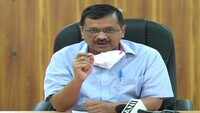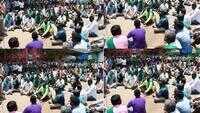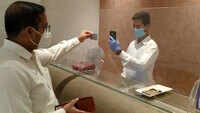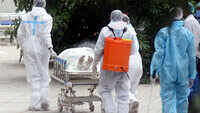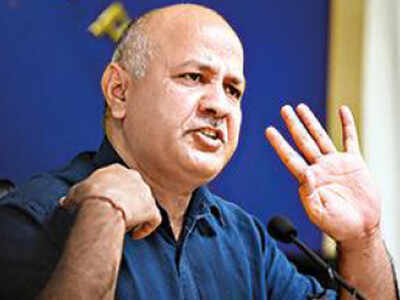
NEW DELHI: Deputy chief minister Manish Sisodia has highlighted the need for taking the novel coronavirus-induced pandemic as an opportunity to bring about exam reforms and reduce 30% of the syllabus.
While appreciating the initiative of the Ministry of Human Resource Development (MHRD) to plan reopening of schools with reasonable guidelines, Delhi’s education minister said that online teaching could not replace classroom teaching and stressed the importance of continuous evaluation.
In a letter to HRD minister Ramesh Pokhriyal Nishank, Sisodia said, “We need to assure every child irrespective of age and social class that they are important to us and all of them have equal right to physical and intellectual space of their respective schools. The clamour of online teaching or older children coming to school first and not the younger ones should be put to rest. Online teaching can only complement the learning in school, not replace it.”
He also opined that a plan was required for bringing primary children to school as learning across all stages was important.
He suggested adopting a distinct approach to be followed in early childhood and elementary grades. “Instead of continuing the remaining part of schooling with reduced syllabus, let us move beyond the tendency to just complete the syllabus. Instead, fluency in reading with understanding and oral expression, writing different genre of text, number sense, emotional resilience, internalisation of healthy and hygienic practice, etc, should be the key areas of engagement between children and their teachers,” said Sisodia.
For secondary and senior secondary grades, he suggested that NCERT and CBSE be asked to remove the stranglehold of syllabus and rote learning-oriented exam from the academic life of a child. “CBSE should move away from one-time high-stake exam of class 10 and 12 to a model of continuous evaluation so that students can take online exam whenever they want,” suggested the deputy CM.
On exam reforms, he suggested following the approach of the International Baccalaureate (IB) board. He also advised international-level training for teachers. “We cannot expect a fundamental change in education and examination unless our teachers are ready and prepared for it,” Sisodia wrote.
While appreciating the initiative of the Ministry of Human Resource Development (MHRD) to plan reopening of schools with reasonable guidelines, Delhi’s education minister said that online teaching could not replace classroom teaching and stressed the importance of continuous evaluation.
In a letter to HRD minister Ramesh Pokhriyal Nishank, Sisodia said, “We need to assure every child irrespective of age and social class that they are important to us and all of them have equal right to physical and intellectual space of their respective schools. The clamour of online teaching or older children coming to school first and not the younger ones should be put to rest. Online teaching can only complement the learning in school, not replace it.”
He also opined that a plan was required for bringing primary children to school as learning across all stages was important.
He suggested adopting a distinct approach to be followed in early childhood and elementary grades. “Instead of continuing the remaining part of schooling with reduced syllabus, let us move beyond the tendency to just complete the syllabus. Instead, fluency in reading with understanding and oral expression, writing different genre of text, number sense, emotional resilience, internalisation of healthy and hygienic practice, etc, should be the key areas of engagement between children and their teachers,” said Sisodia.
For secondary and senior secondary grades, he suggested that NCERT and CBSE be asked to remove the stranglehold of syllabus and rote learning-oriented exam from the academic life of a child. “CBSE should move away from one-time high-stake exam of class 10 and 12 to a model of continuous evaluation so that students can take online exam whenever they want,” suggested the deputy CM.
On exam reforms, he suggested following the approach of the International Baccalaureate (IB) board. He also advised international-level training for teachers. “We cannot expect a fundamental change in education and examination unless our teachers are ready and prepared for it,” Sisodia wrote.

Coronavirus outbreak
Trending Topics
LATEST VIDEOS
More from TOI
Navbharat Times
Featured Today in Travel
Get the app

